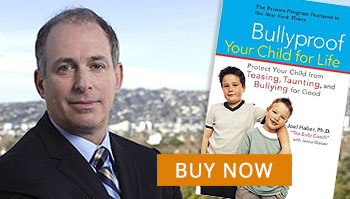 Copyright: Gleb TV/123RF Stock Photo
Copyright: Gleb TV/123RF Stock Photo
When someone hurts your feelings by bullying, sensitive kids expect the bully to be sensitive. When they’re not, often the sensitive kid wants to tell the bully how she feels, particularly when they’re young and the bullying is verbal. (“You hurt my feelings.” “I don’t like it when you say that!” “Stop, you’re making me upset.”) Some parents encourage this, too, believing that if the bully just understood that the words or behaviors were hurtful, they’d stop.
This is wishful thinking and works only when you’re not dealing with a true bully. True bullies don’t have empathy—at least not for your child. They do not care that they’ve hurt your child’s feelings … in fact, that’s exactly what they want. So if your child expresses that his feelings are hurt, it’s just as good as your child saying, “Way to go! You’re accomplishing your goal. Please, keep it up! I might fall apart any second! Get popcorn!”
It’s extremely hard for good people to believe that anyone could be so cruel at heart, especially children. We want to believe just talking to them and helping them understand the effects of their behavior can turn them all around. Some of them can and will learn empathy, sure. Others never will. But your child isn’t there to be a teaching tool after the first time if he continues to be upset by bullying behavior.
This advice does not apply if your child is normally friends with the person who is now doing the bullying (or was once friends with the person): In that case, it may be that the friendship can be repaired and the bullying behaviors can stop if the children sit down and talk to each other about what’s going on. But if you’re dealing with a child who is a stranger to you, or someone who’s never been nice to your child in the past, it’s probably best that your child does not purposely let this bully know that her feelings are hurt.
